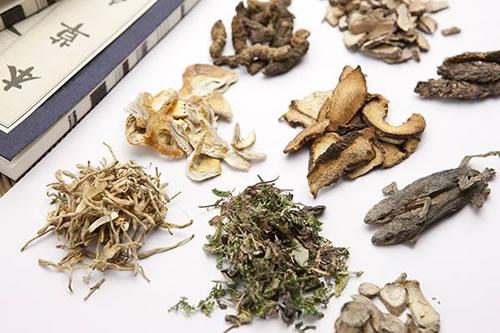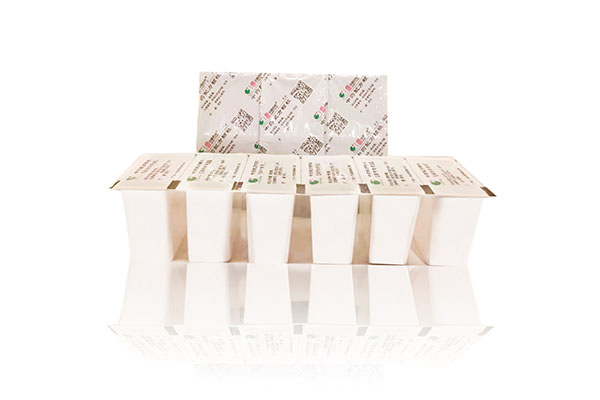One of the most common forms of TCM is concentrated granules, which are made by extracting the active ingredients of herbs and then concentrating them into granular form.
How Are Concentrated Granules Different from Other Forms of TCM?
Concentrated granules are a modern form of TCM that is convenient and easy to take. Unlike other forms of TCM, such as decoctions or raw herbs, concentrated granules do not require any preparation and can be taken on the go. Additionally, the concentration and standardization of the granules ensure a consistent and effective dose of the active ingredients.

Process of Traditional Chinese Medicine Concentrated Granules
Step 1: Herb Selection
The first step in making concentrated granules is selecting the appropriate herbs. Chinese herbal medicine has a long history, and there are thousands of different herbs available. The selection of herbs is based on the specific health condition that is being treated. Each herb has its own unique properties, and when combined, they work together to provide a synergistic effect.
Step 2: Cleaning and Sorting
After the herbs have been selected, they are cleaned and sorted. This is done to remove any impurities, such as dirt or other foreign matter, and to ensure that the herbs are of the highest quality. The herbs are usually washed with water and then sorted by hand to remove any damaged or inferior pieces.
Step 3: Extraction
The next step is the extraction of the active ingredients from the herbs. There are several methods of extraction, including boiling, soaking, and steam distillation. The most common method used in the production of concentrated granules is the water extraction method.
In the water extraction method, the herbs are placed in a large pot with water and then boiled for several hours. The water is then filtered to remove any solid particles, and the liquid is concentrated by evaporation. The concentration process removes the water, leaving behind a thick paste-like substance.
Step 4: Drying and Granulating
Once the liquid has been concentrated, it is dried and then granulated. The drying process involves spreading the paste-like substance on large trays and then placing them in a drying room. The drying room is heated to a specific temperature, and the paste is dried until it becomes a dry powder.
The powder is then granulated using a granulator machine, which compresses the powder into small granules. The size of the granules depends on the intended use of the concentrated granules. For example, if the granules are to be taken orally, they need to be small enough to swallow easily.
Step 5: Testing and Packaging
The final step in the production of concentrated granules is testing and packaging. The granules are tested to ensure that they meet the required quality standards. This includes testing for purity, potency, and safety. Once the granules have been approved, they are packaged in individual sachets or bottles.
Step 6: Quality Control
In addition to testing the granules for purity, potency, and safety, there are also several other quality control measures that are taken to ensure that the concentrated granules meet the highest standards. For example, the herbs used in the production of the granules must be from a reliable source and free from contaminants. Additionally, the extraction process must be carefully monitored to ensure that the active ingredients are being extracted in the most effective way possible.
Step 7: Standardization
To ensure consistency and potency, the concentrated granules are standardized. This means that the concentration of active ingredients in each granule is carefully controlled to ensure that each dose provides a consistent and effective amount of the herbal compounds.
Step 8: Storage and Shipping
Once the concentrated granules have been packaged, they must be stored in a cool, dry place to maintain their potency and effectiveness. They are typically shipped in temperature-controlled containers to ensure that they arrive at their destination in the best possible condition.
Are Concentrated Granules Suitable for Everyone?
Concentrated granules may not be suitable for everyone, particularly pregnant or breastfeeding women, children, and people with certain medical conditions or who are taking certain medications.
It is important to consult with a qualified TCM practitioner before taking concentrated granules to determine if they are safe and appropriate for you.
How Long Do Concentrated Granules Last?
The shelf life of concentrated granules can vary depending on the specific herbs and the storage conditions. Proper storage is key to maintaining the potency and effectiveness of the granules over time.
It is important to always check the expiration date on the packaging before using the concentrated granules and to discard any expired product.

Overall, the production of traditional Chinese medicine concentrated granules is a complex process that requires a great deal of knowledge and expertise. However, the end result is a highly effective form of TCM that is convenient and easy to take.
By carefully selecting and processing the herbs, and ensuring that the granules meet the highest quality standards, TCM practitioners can provide their patients with a safe and effective form of natural medicine.
